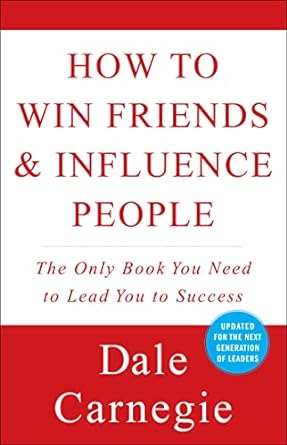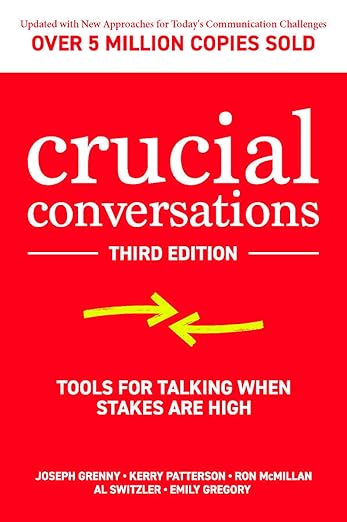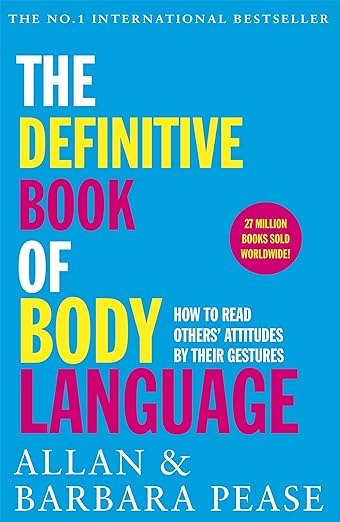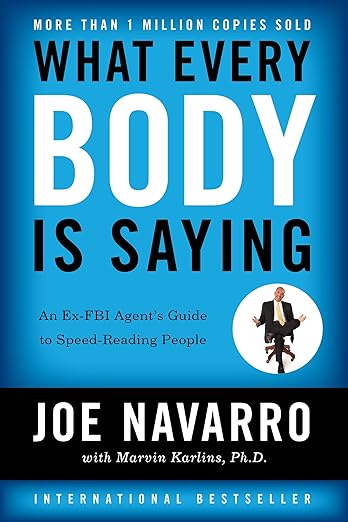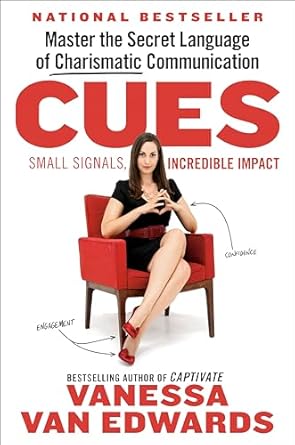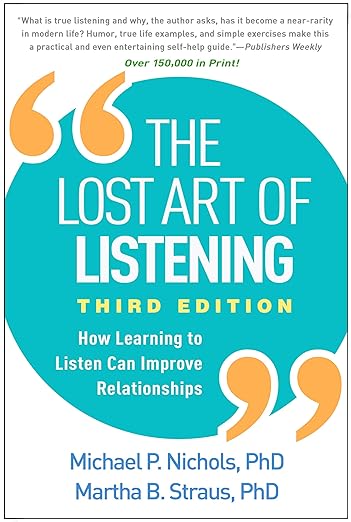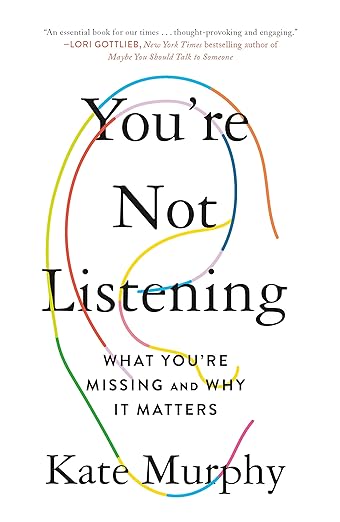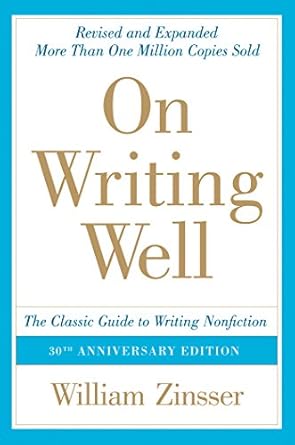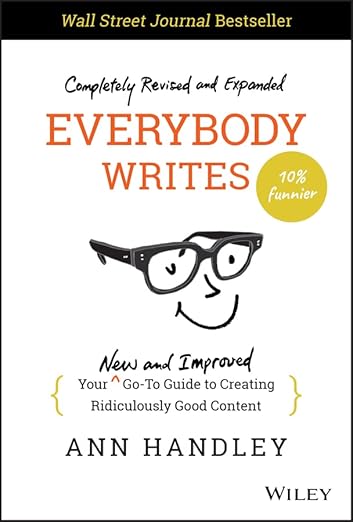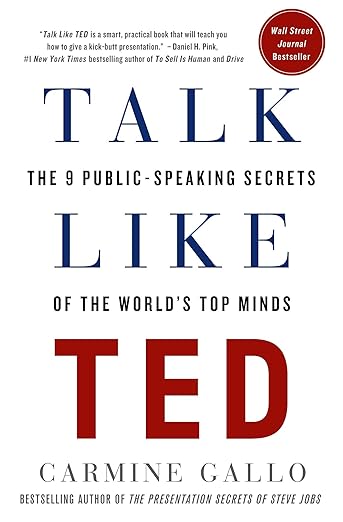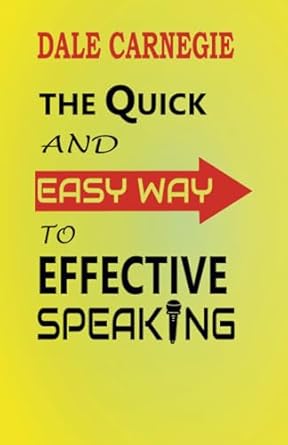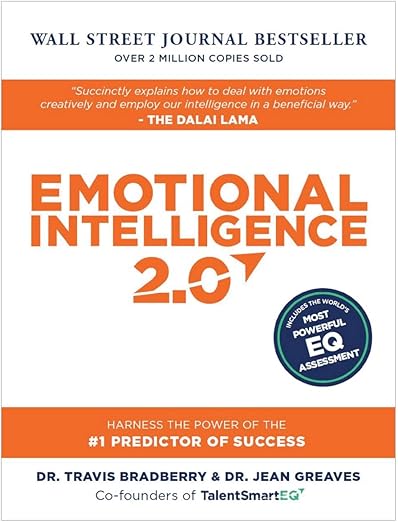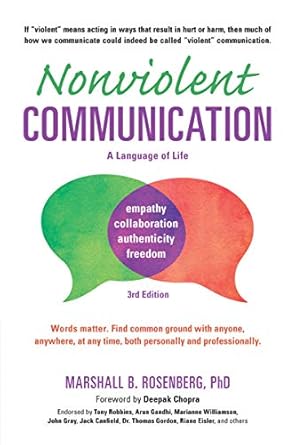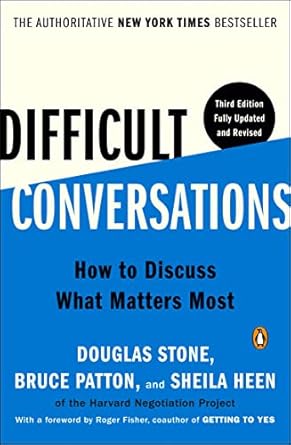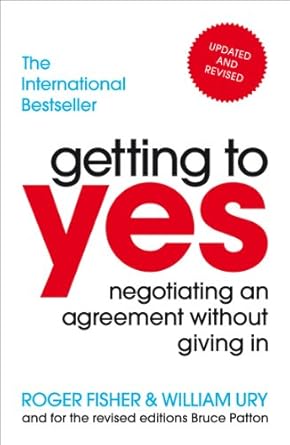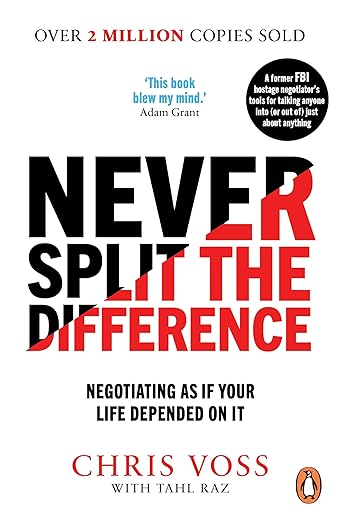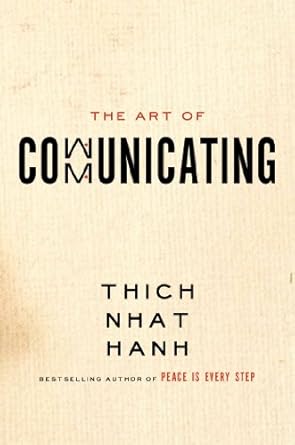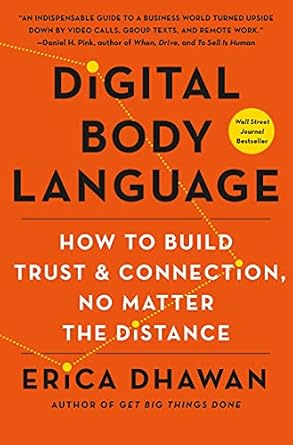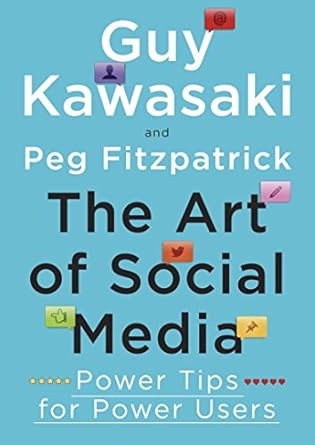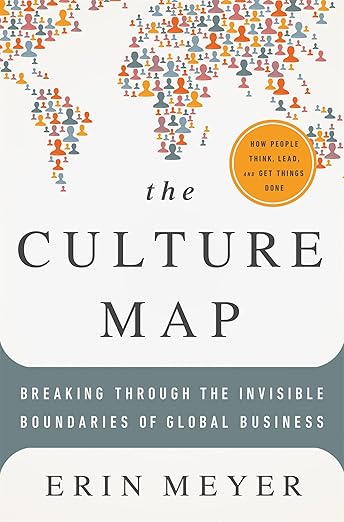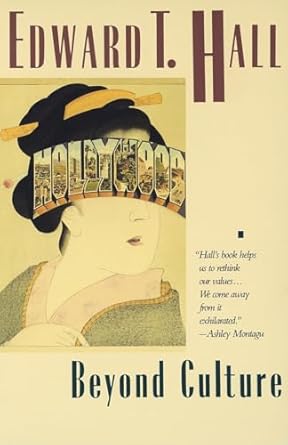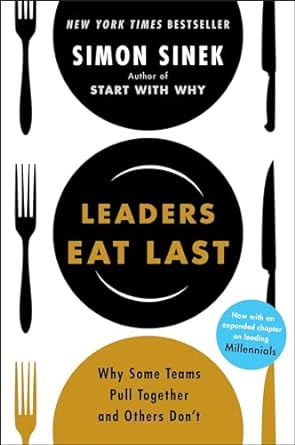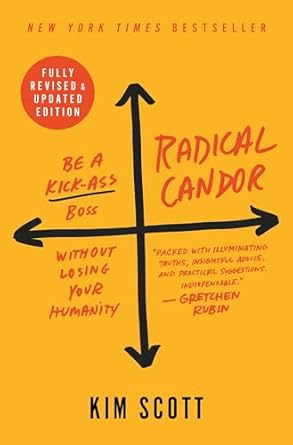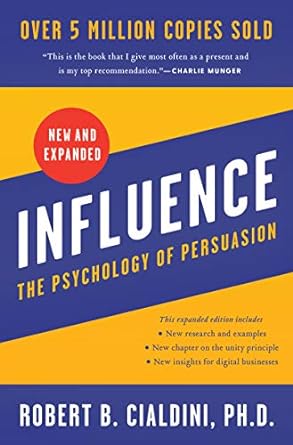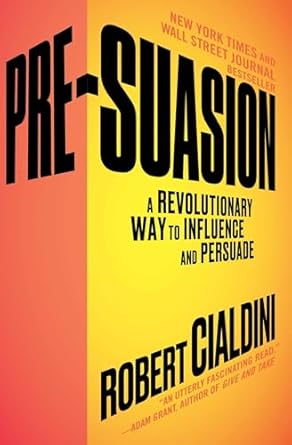Best Books on Communication
Effective communication is one of the most valuable skills in both personal and professional life. Whether you are navigating daily conversations, delivering presentations, or building strong relationships, the ability to communicate clearly and persuasively is essential.
In this article, I explore the best books on communication. These books cover the most important communication skills, including mastering body language, improving your listening skills, negotiating difficult conversations, understanding cross-cultural nuances, team building, and enhancing leadership communication.
Why Are Communication Skills Important?
This is a no-brainer. Your happiness and success in the workplace are directly dependant on your social skills. If you are bad at communication, people will not like you, and your career will be impaired.
If you are good at communication, people will like you, you will develop healthier personal relationships and improve interactions with colleagues and family members alike. You will easily build a supportive community, and your career will flourish.
Effective communication correlates with higher job performance, leadership success, and team cohesion, all of which are essential for career advancement (Guo et al., 2015, Treglown et al., 2020).
Whether in personal relationships or in the workplace, strong communication helps build trust, resolve conflicts, and foster collaboration.
How Can Books Improve Your Communication Skills?
In my experience, live courses on communication and leadership are the most impactful activity you can do for your career. However, excellent courses in this field are rare and expensive. The second best strategy is to follow online courses and read books about the subjects.
Books on social skills are particularly useful for those who may have a hard time engaging in small talk or face a lack of communication skills in certain areas.
Verbal communication is – without doubt – a crucial skill for anyone in the modern world. This article is an essential guide to books on enhancing your communication abilities with practical tools and actionable strategies in professional settings or daily life. These books offer valuable lessons on how to connect more effectively with others.
The power of storytelling is a potent tool for public speakers and professionals. You can create an emotional connection that resonates with your audience through powerful stories. This approach is commonly used by business leaders and research group leaders to inspire and motivate.
What to Look for in a Good Communication Book?
The best books on communication give you a scientific background based on studies (and not only case studies or personal experiences and insights of the author). They provide practical insights and strategies based on research and real-world examples.
The best books on communication offer tools for improving both verbal and nonverbal communication, help you understand the nuances of emotional intelligence, and give you actionable steps to apply in daily interactions.
Unfortunately, there are also many bad books on communication. Therefore, I am giving you below a list of my favorite books on communication.
To help you select the best book for you right now, I will also briefly evaluate each book, stating which aspects are good (Pro) and which aspects can be criticized in each book (Contra).
Top Books for Enhancing Verbal Communication
Books on verbal communication help you craft clear, persuasive, and impactful messages. The following books focus on mastering the art of conversation, improving your influence, and navigating difficult discussions with confidence.
“How to Win Friends and Influence People” by Dale Carnegie
This classic self-help book provides timeless strategies for building relationships and influencing people through empathy, listening, and understanding.
Pro: Easy to read with practical advice that has stood the test of time.
Con: The book’s principles are timeless, though some examples may feel dated in a modern context.
“Crucial Conversations: Tools for Talking When Stakes Are High” by Kerry Patterson, Joseph Grenny, Ron McMillan, and Al Switzler
Summary: My absolute favorite book about negotiation under challenging conditions. This book focuses on handling high-stakes conversations effectively, offering tools for managing emotions and fostering open dialogue.
Pro: The book provides actionable frameworks for navigating difficult discussions in both personal and professional settings.
Con: In some parts, I find it too formulaic or prescriptive, lacking flexibility in complex, nuanced situations.
Best Books on Nonverbal Communication
Nonverbal communication—such as body language, facial expressions, and gestures—plays a significant role in how we convey and interpret messages. Books in this category help you read others’ nonverbal cues and become more aware of the signals you are sending.
How Can Understanding Body Language Improve Your Communication?
By understanding body language, you can better gauge the emotions and intentions of others, allowing you to respond more effectively. This awareness can also improve your own nonverbal communication, making you appear more confident, open, and engaged.
“The Definitive Book of Body Language” by Allan and Barbara Pease
Summary: This book is a comprehensive guide to understanding and interpreting body language. It helps you decode nonverbal cues in communication.
Pro: Rich in practical examples and illustrations, making body language concepts easy to grasp.
Con: I had the impression that some of the body language interpretations seem generalized or culturally biased.
“What Every BODY is Saying” by Joe Navarro
Summary: Written by a former FBI agent, this book provides expert insights into nonverbal communication, particularly in detecting deception and understanding emotions.
Pro: It offers unique and credible insights based on real-life law enforcement experience.
Con: Focuses heavily on reading body language for security or interrogation purposes, which might be a limited focus for a work environment.
“Cues: Master the Secret Language of Charismatic Communication” by Vanessa Van Edwards
Summary: I find this an excellent guide to better understanding the subtle cues—both verbal and nonverbal—that charismatic people use to influence and inspire others. Vanessa Van Edwards offers research-based strategies to help readers develop their charisma and become more persuasive communicators.
Pro: It provides actionable tips backed by extensive research, making complex concepts about charisma accessible to readers. It also includes practical exercises to help develop both verbal and nonverbal communication skills.
Con:
Some readers might find the focus on body language and behavioral cues too formulaic or prescriptive, and certain techniques may not feel authentic for everyone trying to implement them in real-life scenarios.
Best Books on Listening Skills
Effective communication is not just about speaking—it is equally about listening. Books on listening skills teach you how to truly hear and understand what others are saying, fostering deeper connections and reducing misunderstandings.
How Listening Improves Overall Communication
Good listening improves communication by showing respect, enhancing trust, and preventing conflicts. When you listen actively, you gain a better understanding of the speaker’s perspective, leading to more productive conversations.
“The Lost Art of Listening” by Michael P. Nichols
Summary: This book emphasizes the importance of active listening in building strong relationships and improving communication.
Pro: It offers deep insights into how we can listen more effectively to enhance personal connections.
Con: You may find the advice too psychological or theoretical rather than immediately practical.
“You’re Not Listening: What You’re Missing and Why It Matters” by Kate Murphy
Summary: Murphy shows us how genuine listening is a lost art—and how rediscovering it can completely change the way we connect with others.
Pro: Murphy’s writing is engaging and accessible, blending solid research with real-life stories that make you stop and think about your own listening habits.
Con: Some parts of the book feel repetitive at times, with overlapping themes.
Best Books for Improving Written Communication Skills
Writing is a vital communication skill, whether it is for publications, grant proposals, professional emails, or personal messages. Books on this topic help you craft clear, concise, and engaging content that resonates with your audience.
These authors recommend simplifying your language, focusing on clarity, and always keeping your audience in mind. They emphasize the importance of rewriting and editing to polish your work.
“On Writing Well” by William Zinsser
Summary: This writing guide offers practical advice on writing clear, concise, and engaging prose, especially for non-fiction.
Pro: Timeless advice, suitable for writers at any level, with a focus on clarity and simplicity.
Con: I find the tone a bit formal or traditional compared to modern writing styles.
“Everybody Writes” by Ann Handley
Summary: A practical guide for writing in the digital age, this book focuses on creating content that engages and converts readers online.
Pro: Actionable tips for improving online writing, from blog posts to social media content.
Con: I found some advice a bit basic for experienced writers or professionals.
Books on Public Speaking
Public speaking is an essential skill for conveying ideas in front of an audience. Books on this topic help you learn from the best public speakers and teach you how to confidently engage listeners, structure your presentations, and speak.
Techniques for Effective Public Speaking
Effective public speaking techniques include organizing your message clearly, using stories to engage your audience, and practicing your delivery to boost confidence.
“Talk Like TED” by Carmine Gallo
Summary: This book analyzes the communication techniques of top TED speakers, offering insights on how to deliver memorable and impactful presentations and, thus, the power of storytelling.
Pro: Full of practical tips for crafting engaging public speeches and building an emotional connection with listeners based on the best TED talks.
Con: Focuses heavily on TED-style presentations, which might not apply to all public speaking situations, such as data-based presentations and original research during scientific meetings.
“The Quick and Easy Way to Effective Speaking” by Dale Carnegie
Summary: This book provides simple and actionable advice based on Carnegie’s long-standing teaching methods for improving public speaking skills.
Pro: Straightforward and practical, with timeless tips for overcoming stage fright.
Con: This book was first published in 1962; thus, some advice may feel outdated compared to modern public speaking techniques.
Books for Building Emotional Intelligence in Communication
Emotional intelligence is the ability to understand and manage your emotions and those of others. Books in this category teach you how to build stronger relationships and navigate difficult conversations with empathy and clarity.
The Role of Emotional Intelligence in Effective Communication
Emotional intelligence helps you remain calm under pressure, express yourself clearly, and understand others’ emotional states, making for more compassionate and effective communication.
“Emotional Intelligence 2.0” by Travis Bradberry and Jean Greaves
Summary: This book focuses on developing emotional intelligence (EQ) to improve personal and professional communication.
Pro: Practical EQ strategies and self-assessment tools make the advice actionable and tailored to individuals.
Con: The content might feel too basic for those already familiar with emotional intelligence concepts.
“Nonviolent Communication” by Marshall B. Rosenberg
Summary: This book introduces a communication method that focuses on empathy, understanding, and resolving conflicts without hostility.
Pro: A powerful approach to fostering compassionate and productive conversations.
Con: I think it is important to know the concepts; however, in some parts, I find the language too idealistic or difficult to implement in real-world conflicts.
Books for Conflict Resolution and Difficult Conversations
Conflict is probably inevitable in any relationship, but how you handle it can strengthen or weaken your connection. Books on conflict resolution provide frameworks and strategies to manage disagreements constructively.
Tips for Managing and Resolving Conflicts
These books offer practical tips such as focusing on interests, not positions, and separating the people from the problem to achieve a win-win solution in difficult situations.
“Difficult Conversations” by Douglas Stone, Bruce Patton, and Sheila Heen
Summary: This book offers a step-by-step approach to handling tough conversations with confidence and clarity.
Pro: It provides a clear framework for navigating sensitive topics without escalating conflict.
Con: The advice may feel too structured or theoretical for complex emotional conversations.
“Getting to Yes” by Roger Fisher, William Ury, and Bruce Patton
Summary: A seminal book on negotiation, it introduces the concept of principled negotiation, focusing on win-win outcomes.
Pro: Highly practical with timeless negotiation strategies applicable in many scenarios.
Con: I think some strategies need adaptation for highly competitive environments but provide a strong foundation for cooperative negotiation.
Books for Professional and Business Communication
Strong communication in the workplace is essential for team building, leadership, and negotiation. These books provide strategies for effective professional interactions.
How Can These Books Help in the Workplace?
They teach negotiation techniques, mindful communication, and leadership strategies that improve collaboration, build trust, and enhance workplace dynamics.
“Never Split the Difference” by Chris Voss
Summary: A great book by a former FBI hostage negotiator who shares techniques for negotiating in high-stakes situations, applicable in business and personal life.
Pro: Unique insights into negotiation from an FBI perspective, offering unconventional yet effective strategies.
Con: I find some techniques feel too manipulative for typical business or personal interactions.
“The Art of Communicating” by Thich Nhat Hanh
Summary: This book integrates mindfulness into communication, teaching readers how to speak with compassion and listen deeply.
Pro: It offers a refreshing, spiritual approach to improving communication and relationships.
Con: I like it a lot, but the advice might feel too philosophical or abstract for readers looking for practical business communication tips.
Books on Digital Communication and Social Media
With the rise of digital communication, understanding how to convey messages effectively online is crucial. These books focus on navigating the challenges of virtual communication.
How to Communicate Effectively in the Digital World
Digital communication requires clarity, brevity, and an understanding of how tone can be misinterpreted. These books provide tips on managing virtual teams, and networking.
“Digital Body Language” by Erica Dhawan
Summary: This book explores how digital communication alters traditional body language and offers tips for improving connection in virtual spaces.
Pro: Highly relevant in today’s digital world, with actionable tips for remote communication.
Con: Focuses primarily on business environments, which may limit its appeal for scientific or more casual digital communication.
“The Art of Social Media” by Guy Kawasaki and Peg Fitzpatrick
Summary: A comprehensive guide to mastering social media, filled with strategies for building an online presence and engaging audiences.
Pro: Practical, easy-to-implement advice for individuals and businesses looking to improve their social media presence.
Con: I find that some strategies may feel dated, as social media trends and platform algorithms evolve rapidly.
Books on Cross-Cultural Communication
In an increasingly globalized world, cross-cultural communication is essential, especially in science. These books help you understand cultural differences and navigate diverse interactions.
What Are the Key Takeaways for Cross-Cultural Interactions?
Key takeaways include understanding different communication styles, adjusting your approach based on cultural norms, and being open to learning from diverse perspectives.
“The Culture Map” by Erin Meyer
Summary: This book offers a guide to understanding cultural differences in global business settings and improving cross-cultural communication.
Pro: Clear, actionable insights for navigating diverse cultural landscapes backed by real-world examples.
Con: Geared primarily toward corporate and business settings, which may limit its relevance for readers in non-profit or scientific contexts.
“Beyond Culture” by Edward T. Hall
Summary: A foundational book on intercultural communication exploring how culture shapes behavior and communication patterns.
Pro: It provides deep insights into the role of culture in communication, introducing key concepts such as high-context vs. low-context cultures.
Con: Some concepts may feel dated or overly academic for readers looking for immediate practical application.
Books for Leaders and Managers
Leadership requires excellent communication skills to inspire, motivate, and guide teams. These books provide strategies for effective communication in leadership roles.
Communication Strategies for Leadership
Leadership communication involves being clear, compassionate, and direct. These books emphasize the importance of building trust, offering constructive feedback, and leading by example.
“Leaders Eat Last” by Simon Sinek
Summary: A great book that focuses on leadership through the lens of fostering trust and cooperation within teams, emphasizing servant leadership.
Pro: Inspiring and thought-provoking, with a focus on building strong, trust-based teams.
Con: The book can feel repetitive, with anecdotal evidence outweighing actionable advice.
“Radical Candor” by Kim Scott
Summary: This book describes a management style that combines directness with empathy to create honest, productive feedback loops.
Pro: Offers practical strategies for giving and receiving feedback in a way that fosters growth and teamwork.
Con: You may find the tone overly aggressive or the advice difficult to apply – especially in more hierarchical settings.
Books on Persuasion and Influence
Persuasion is a key skill for influencing others and achieving your goals. These books explore the psychology of influence and how to ethically persuade others.
Techniques for Ethical Persuasion in Communication
These books teach techniques such as social proof, reciprocity, and authority, showing how to influence others while maintaining integrity and trust.
“Influence” by Robert B. Cialdini
Summary: A must-read classic on the psychology of persuasion. This book explores the fundamental principles that drive human decision-making.
Pro: Highly research-backed with timeless insights into how influence works in marketing, sales, and everyday interactions.
Con: First published in 1984, you may find some examples outdated or overly focused on manipulation.
“Pre-Suasion” by Robert B. Cialdini
Summary: This follow-up to Influence explains how to set the stage for persuasion by controlling the context and environment before the actual conversation.
Pro: Unique and innovative approach to influence, offering preemptive techniques for persuasion.
Con: It may feel overly complex or abstract compared to more straightforward communication advice.
Acknowledgments
I have used AI systems, including Grammarly, Google Gemini, and ChatGPT, to enhance the English and comprehensiveness of this article. This post contains affiliate links, meaning I get a small commission if you decide to purchase through my link. Thus, you support smartsciencecareer at no cost to you!
Recommended reading
The following articles may also interest you:
- Best books on salary negotiation and getting a raise
- Best books on metaphysics for scientists
- Corresponding author versus senior author – what is the difference?
- How to ask for a letter of recommendation?
- How To Write My Professor
- How to get over narcissistic abuse by a supervisor?
- 28 Tips to Get More Citations for Your Publications
- 20 Strengths and Weaknesses of Leaders in Science
- How to become an expert in your scientific field?
- How To Write Faster: 19 Efficient Ways To Finish My Publication
- What is a postdoc?


